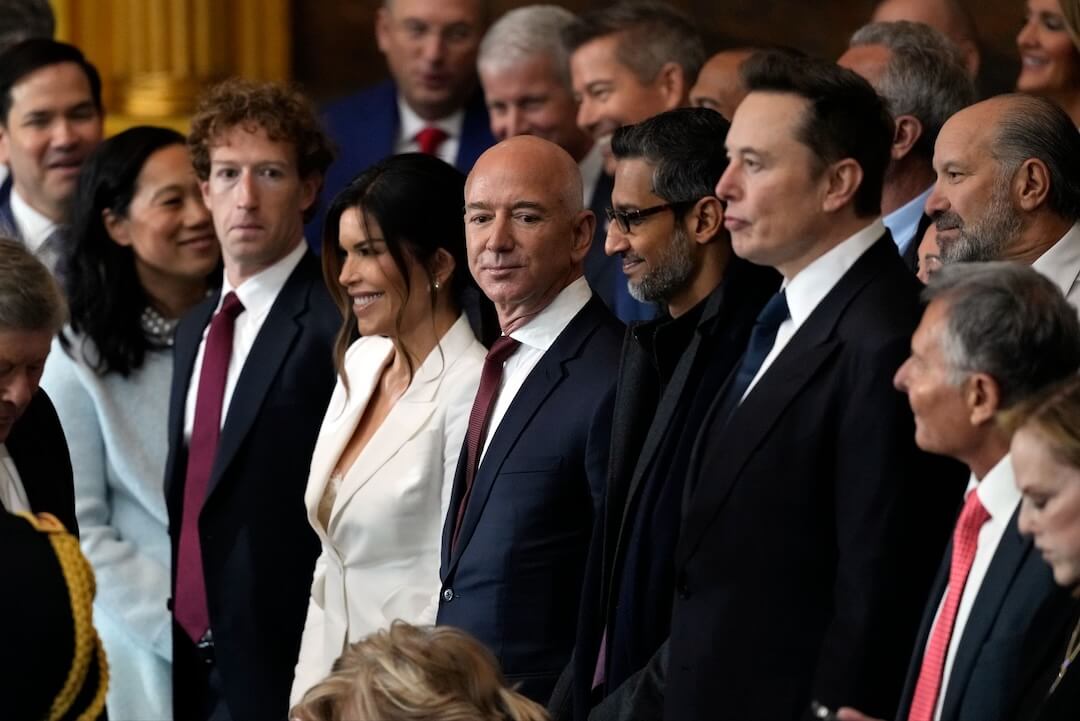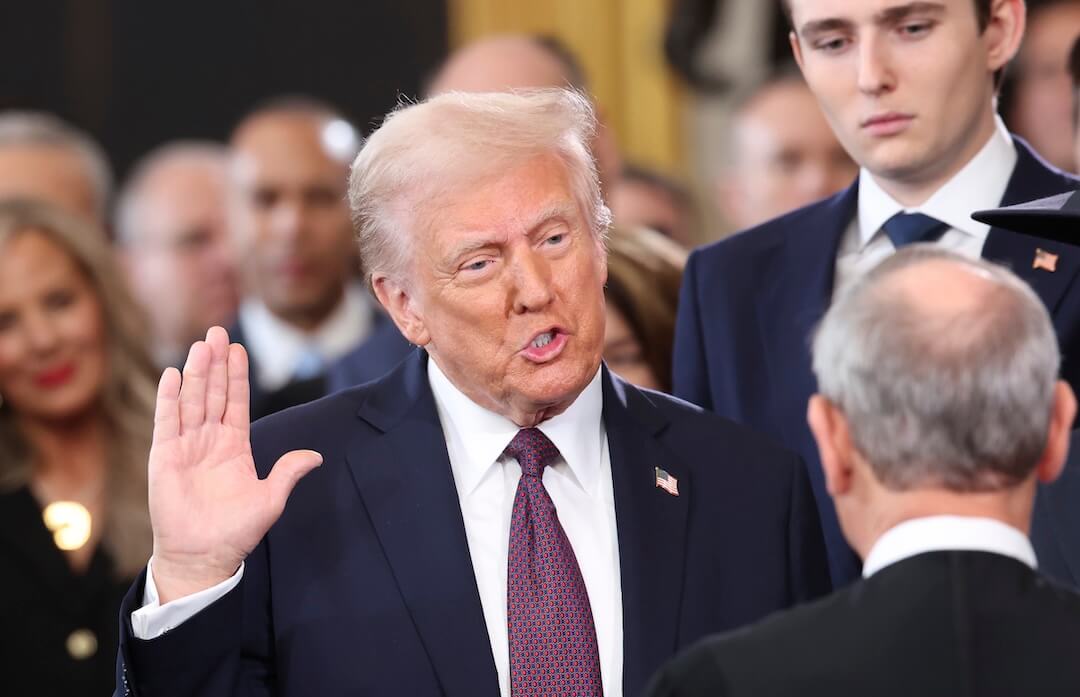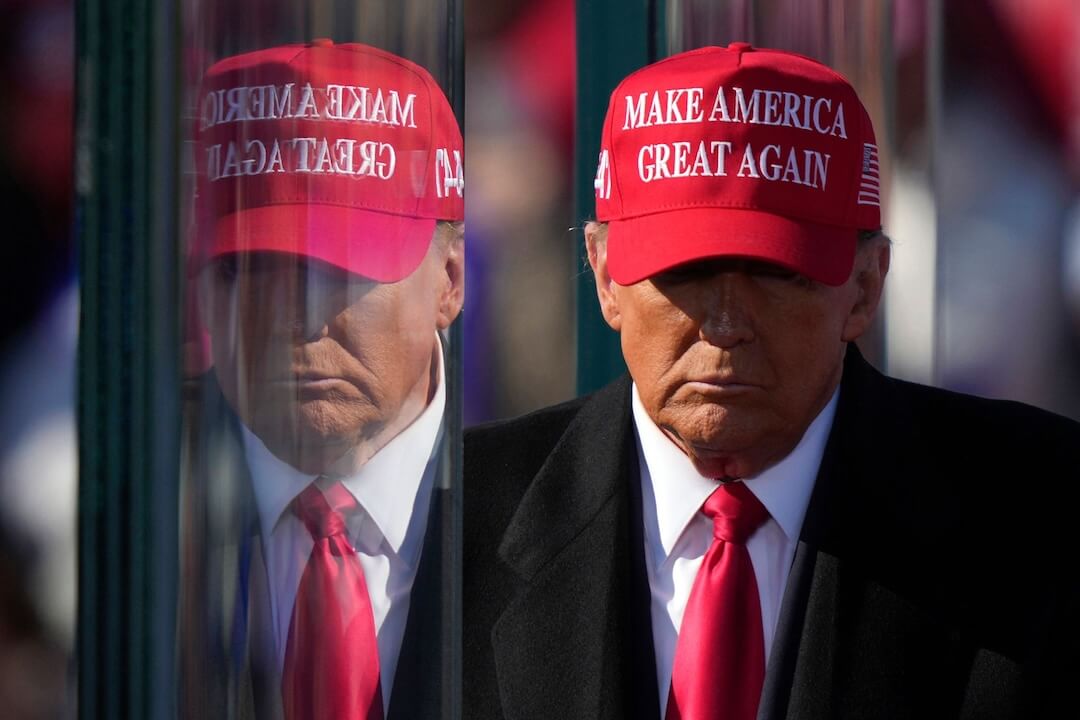As Mitt Romney visited Poland this summer, Washington Post reporter Phil Rucker shouted a question to the candidate that revealed a lot about the media’s coverage of the campaign.
“What about your gaffes?” Rucker called out, as Gov. Romney walked to his car in Warsaw.
The governor didn’t answer, but the question highlighted the focus of much of the media’s day-to-day narrative. Journalists, bloggers, pundits — and sometimes the campaigns themselves — gleefully piled on after either candidate committed a perceived misstep or uttered an inelegant statement.
From President Obama’s declaration that “the private sector is doing fine” (labeled as an “economic gaffe” by ABC News) to Gov. Romney’s admission that “I’m not concerned about the very poor” (a possible “monster gaffe,” declared The Week), the campaign narrative often centered more on the candidates’ offhand ad libs than their platforms or policy records.
Many of the verbal miscues provided media fodder only for a couple of news cycles before being quickly forgotten. (Neither Obama’s August “spelling gaffe” nor Romney’s “CookieGate” comments got much attention outside of partisan media.)
But a handful of the unscripted statements had major roles in setting — or changing — the media narrative of the campaign. While it’s not clear whether any of the remarks had a lasting impact on voters, several received extensive attention in the mainstream media, on blogs, and in social media.
“The gaffes are easy to cover,” said Southern Methodist University Journalism Professor Tony Pederson. “They don’t require a lot of digging; they’re just a quick and dirty story.”
Among the candidate utterances that became campaign memes:
“Corporations are people, my friend”
Romney’s response to protesters at the Iowa State Fair came early in the campaign, long before he secured the Republican nomination. But almost immediately, pundits accurately predicted it would provide fodder for Democratic attack ads. While Romney seemed to be trying to say that corporate profits benefit shareholders, the retort helped form his public persona as a rich businessman who identified more with Wall Street than Main Street – an image he continued to foster through later comments including his out-of-context remark that, “I like being able to fire people,” his proposed $10,000 bet with Texas governor Rick Perry, and his secretly recorded dismissal of “47 percent of the people.”
“One of Romney’s problems is that a number of these gaffes helped develop a storyline,” said Steve Frantzich, a U.S. Naval Academy political scientist and author of “OOPS: Observing Our Politicians Stumble.”
“There are 47 percent of the people … who are dependent upon government, who believe that they are victims”
About that secret video, originally obtained by Mother Jones: It led the evening newscasts on the broadcast networks, was reported on the front page of The New York Times, reverberated through social media, and even had the pro-Republican Wall Street Journal editorial page suggesting that Romney deserved to lose if he couldn’t express a more inclusive political vision.
The video had several elements that helped it break through the noise of a continuously-covered campaign. Not only did it tend to reinforce concerns from some voters about Romney’s ability to relate to them, it also had an element of “reality television” to it. Covertly recorded inside a high-dollar fund-raiser, it allowed Americans to see the candidate speaking frankly at a time he believed he was out of broad public view.
Romney briefly slipped in the polls after the release of the video, and his campaign was forced to spend time and resources on damage control. Still, “the 47%” remained a major theme of political coverage – and Obama’s campaign – until Election Day.
-

- AP Caption: “Republican presidential candidate and former Massachusetts Gov. Mitt Romney delivers his concession speech at his election night rally in Boston, Wednesday, Nov. 7, 2012.” (Charles Dharapak/AP)
“You didn’t build that”
Obama’s campaign experienced its own diversion following a July speech in which he spoke about the role of schools, roads, bridges, and other public infrastructure. “If you’ve got a business, you didn’t build that. Somebody else made that happen,” the President said.
While the Obama campaign claimed his comment was taken out of context, the quote became a sensation. While Obama made TV commercials attempting to explain his remarks, Romney adopted a campaign theme of, “We Built It.”
There’s no evidence that Obama’s remarks affected his poll numbers. But a LexisNexis search found more than 800 news stories, interviews, and talk shows that referenced the controversial comments. Radio and television hosts Rush Limbaugh, Sean Hannity, and Glenn Beck were among the first to mention them, and after Romney personally called out Obama for the speech, it exploded into the mainstream media.
“They brought us whole binders full of women”
Perhaps as much for its unusual imagery as its policy content, Romney’s anecdote at the second presidential debate sparked a sudden social media frenzy. Within hours after Romney used the phrase to describe his effort to recruit female cabinet secretaries in Massachusetts, the hashtag #bindersfullofwomen began trending on Twitter, while the phrase sparked a popular Tumblr account and became a top search term on Google.
It also led to more than 1,400 news stories and helped rekindle a wider discussion of women’s issues in the campaign, where Democrats had for months been accusing Republicans of waging a “war on women.” Romney already had repudiated Missouri Republican Senate candidate Todd Akin, whose comments about “legitimate rape” Romney termed “offensive.” He would later try to distance himself from Indiana GOP Senate hopeful Richard Mourdock, who said that if a woman becomes pregnant as a result of rape, “that is something God intended to happen.” Both Akin and Mourdock lost.
Though it’s again not clear whether the specific comments changed people’s votes, exit polls suggested that Romney struggled to connect with female voters. Obama attracted the support of 55 percent of women, while Romney won 44 percent.
“You said in the rose garden the day after the attack it was an act of terror?” Compared with most of the other narrative-changers, the candidates’ exchange over the Benghazi embassy attack in the same debate was neither as brief nor as easily edited into sound bites and political ads. But it was a leading topic of post-debate analysis, and it likely helped the President regain support after a weak performance in the previous debate.
Romney got tripped up while criticizing Obama’s immediate reaction to the attack, and moderator Candy Crowley – in a controversial interjection – largely supported the President’s version of events. The exchange was highlighted in much of the post-debate coverage, with the Denver Post calling it a “major gaffe” and CNN saying, “Romney left voters with the impression that he wasn’t familiar with all the facts.”
The Pew Center for Excellence in Journalism found that the media narrative of the race shifted following the debate. Coverage of Romney was largely balanced prior to the event, with 23 percent of news stories judged as “positive,” 23 percent “negative,” and the rest “mixed.” After the second debate, the positive number fell to 14 percent, with 45 percent negative. Obama’s positive/negative percentages improved slightly from 12/37 before the debate to 17/34 afterward.
Romney largely avoided the issue of the embassy attack in the final debate, sidestepping a topic that many pundits felt was among Obama’s greatest liabilities.
Throughout the campaign, media observers – and even Romney himself — expressed dismay about the degree to which so-called gaffes propelled the political coverage. At the same time, though, the campaigns, the mainstream media, and the social media community all had reasons to promote a gaffe-fueled narrative.
Candidates hoped that exploiting their opponent’s inarticulate ad-libs would motivate base voters, put the other side on the defensive, and allow the campaign to talk about something other than controversial policy issues.
TV networks and other traditional media organizations with 24-hour news cycles hoped to parlay each provocative utterance into hours of news stories and talking-head fodder.
And in an online environment where political punditry is dispensed 140 characters at a time, gaffes and tweets seemed made for each other.
“They’re just such appealing kinds of stories and so easy to jump on,” Frantzich said, predicting that this year’s election may provide a new model for campaigns and political coverage – one that’s driven less by big ideas and policy debates, and more by opportunistic scrutiny of each candidate’s misstatements.
“We can blame the media slightly, but the audience is really attracted to these kinds of stories,” Frantzich said.






